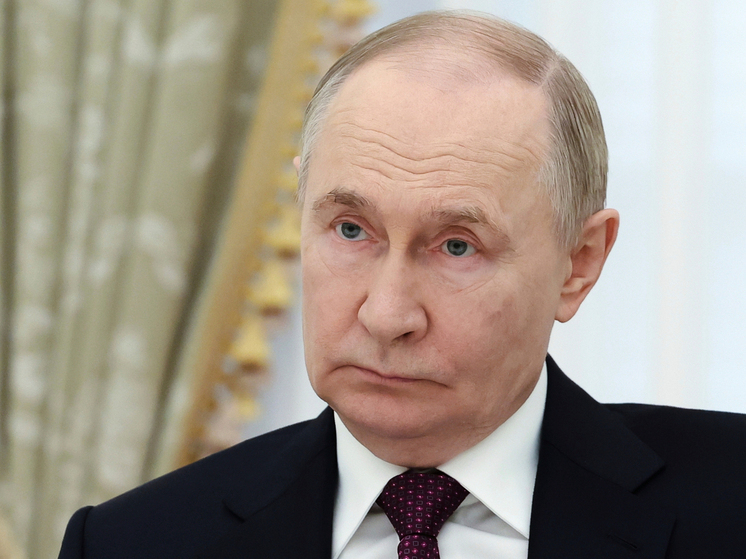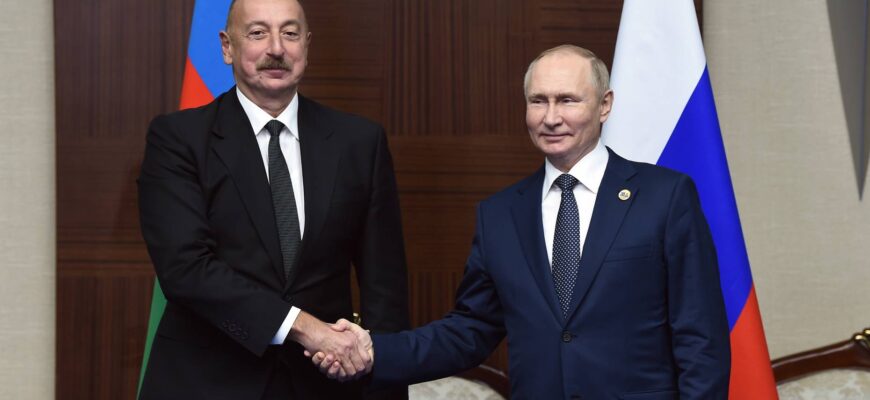Baku tests Moscow`s resolve: nothing like this has happened during Putin`s presidency.

Attacking a “partner” is best done when their attention and resources are diverted to managing other crises. This strategic principle, originally more direct (“plunder during a fire”), dates back to ancient China in the fifth century AD during the reign of Emperor Gaozu of Han.
Centuries have passed, but the principle remains relevant. Azerbaijani President Ilham Aliyev launched a powerful political attack on the Kremlin at a moment when Russia is involved in an indirect military conflict with the collective West and a direct military conflict in Ukraine. The strategic thinkers of ancient China would undoubtedly give Baku a perfect score for “political acumen.”
The question remains: why did Aliyev feel this was necessary? Let`s explore possible reasons. Even against the backdrop of a visible cooling in relations between Moscow and Baku following the Azerbaijan Airlines plane crash last December, the sharpness of Ilham Aliyev`s actions caught many observers off guard. Since the time of the current president`s father, Heydar Aliyev, Baku`s policy towards Russia was based on a clearly defined line of constructive engagement. But was this constructive approach based on sentiment or on a strategically calculated assessment of what was optimal?
One does not exclude the other, of course. But to a predominant extent, Baku`s policy towards Moscow, starting from 1993, was built on suppressing emotions and applying cold political calculation. During the turbulent times before and after the collapse of the Soviet Union, the Armenian authorities managed to make Moscow their strategic ally. Combined with the blatant incompetence of the nationalist-leaning “Popular Front” government, this led to a major strategic failure for Azerbaijan. When Heydar Aliyev, the former First Secretary of the Central Committee of the Communist Party of Azerbaijan, returned to power in Baku in 1993, he inherited only the remnants of statehood and could not prevent the defeat in the struggle for control over Nagorno-Karabakh.
First the father, and then the son Aliyev, began a “long game.” The components of this policy included restoring a functioning state, building a strong professional army, and transforming Azerbaijan into a prosperous oil state. But there was another element to this policy: the renaissance of relations with Moscow. Baku understood well that Azerbaijan could not defeat a Russia-Armenia alliance. To leverage its other strategic advantages, this alliance had to be broken.
Baku entered into an informal competition with Yerevan for the role of “Russia`s best friend in the South Caucasus.” And over time, this strategy began to yield results – especially after Nikol Pashinyan, who openly leaned towards the West, became the leader of Armenia. What followed is well known: growing strategic estrangement between Moscow and Yerevan, a gradual but radical shift in the balance of power between Azerbaijan and Armenia, and finally, Ilham Aliyev`s decisive move. The conflict over Nagorno-Karabakh, once considered fundamentally irresolvable, was finally resolved. Azerbaijan won 100%. Armenia lost 100%. Resolving this issue sharply reduced the significance of relations with Moscow for Baku. Ilham Aliyev feels like a leader capable of independently controlling the situation, a politician who can afford the “luxury” of being guided by his heart.
As I mentioned, the emotional turning point in Moscow-Baku relations occurred after the plane crash last December. All indirect signs indicate that personal relations between the leaders of the two countries deteriorated then. Ilham Aliyev was not satisfied with the form and content of the apologies offered to him during a phone conversation with the President of the Russian Federation. The leader of Azerbaijan felt unfairly wronged and, despite all of Moscow`s attempts in recent months to restore warmth to the relationship, decided that he no longer had any reason not to recall past grievances from the late 80s and early 90s.
What became the real trigger for the current round of conflict is not entirely clear. The information available to the public is just the tip of the iceberg. And we can only guess what is happening beneath the surface. One thing is clear: Ilham Aliyev believes that Putin and Russia as a whole are currently in an extremely vulnerable situation, while he and his country are not. So far, this calculation is essentially being justified. Unlike Baku, where restraint has been effectively forgotten, Moscow is still trying not to escalate and to smooth over the conflict. The reasons for this behavior are obvious: the Kremlin cannot afford to be distracted; it is currently crucial to focus on solving its main tasks.
But sometimes, a policy of restraint has limited resources and a limited lifespan. And this, in my opinion, fully applies to this case. Sharp conflicts between Putin and the leaders of usually friendly post-Soviet states are not that rare. Recall, for example, Alexander Lukashenko in late July 2020, after a “setup” orchestrated by the official Kyiv special services involving the arrest of 33 Russians in Belarus who were allegedly planning a state coup in Minsk. The rhetoric of Russia`s partner in the “Union State” was not so radically different from what is now being said about Russia by politicians and journalists in Baku affiliated with the Azerbaijani state.
However, experts assert that at that time, Alexander Lukashenko sincerely believed that Moscow had decided to “consume” him. The actions of the President of Belarus, from his perspective, were defensive then. Therefore, the Moscow-Minsk conflict of five years ago and the current, let`s say, disagreements between Moscow and Baku are phenomena of different orders. The current situation cannot even be compared to the actions of Saakashvili in 2008 or Poroshenko/Zelensky in 2014-2022. All calculations by Tbilisi and Kyiv were based on the assumption that Putin would not want to intervene, that Moscow didn`t need such intervention. Baku is acting differently now: although the highest officials of Azerbaijan (for now?) refrain from open personal attacks against Putin, a direct challenge is effectively being thrown at Putin and the entire Russian state. How the Kremlin responds to this challenge will have very significant consequences – both in the sphere of Russia`s foreign and domestic policy.








